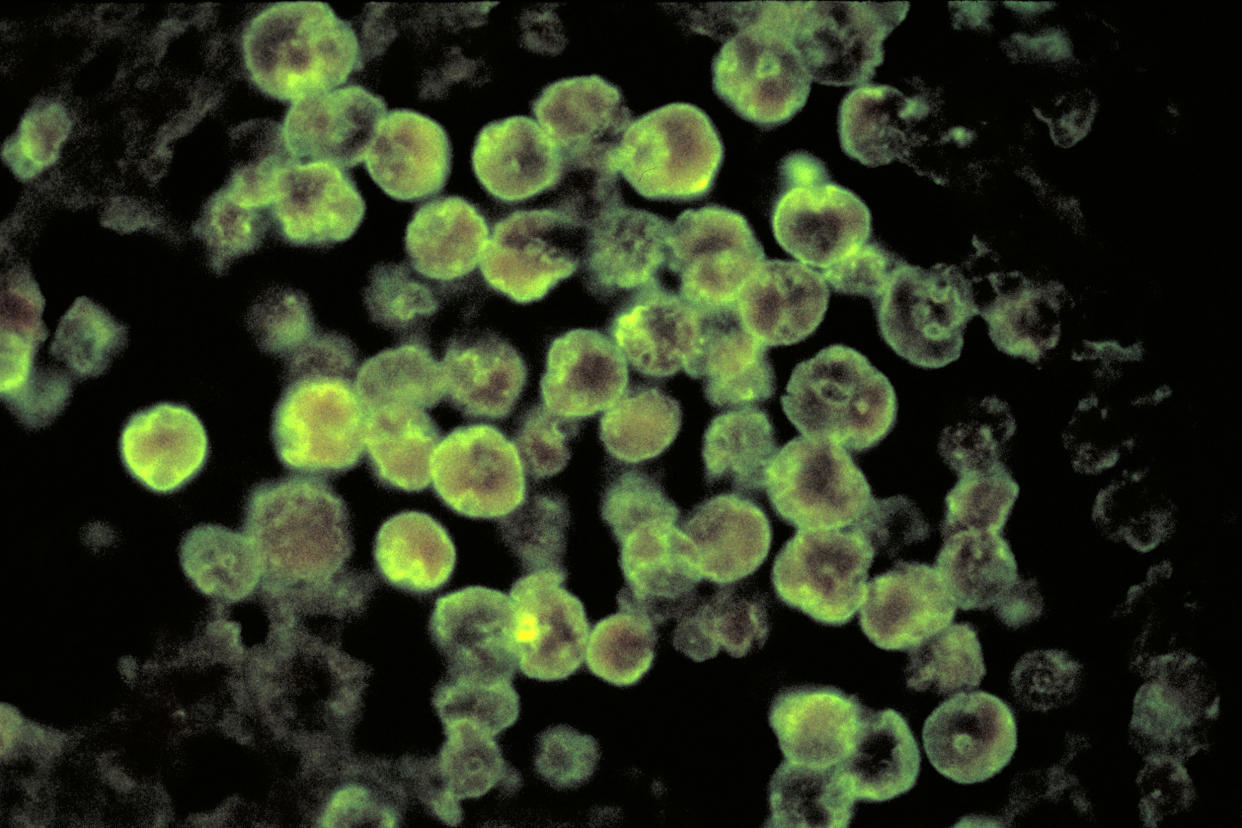'Brain-eating amoeba' infection suspected in child’s death, Nebraska officials say
A child died in Nebraska this week of a suspected infection of Naegleria fowleri, often referred to as a “brain-eating amoeba,” health officials said Wednesday.
The Centers for Disease Control and Prevention is conducting tests to confirm the cause of the infection, Lindsay Huse, director of the Douglas County Health Department, said Thursday.
“Right now, we are simply urging the public to be aware and take precautions when they are being exposed to any warm, freshwater sources," Huse said at a news conference.
If confirmed, this would be the first Naegleria fowleri death in Nebraska's history, the state's Department of Health and Human Services said.
The child died this week in Douglas County, which encompasses Omaha and communities west of the city, the county health department said in a statement.
Huse declined to give further details about the child's identity out of respect for the family. She said the child went swimming in the Elkhorn River on August 8 and developed symptoms about five days later.
The child was hospitalized within 48 hours after the onset of symptoms. The death occurred 10 days after the child went swimming, Dr. Kari Neemann, medical advisor for Douglass County, said at the news conference.

Naegleria fowleri, a single-celled organism, lives in warm bodies of fresh water like lakes, streams and hot springs, as well as in soil.
People can get infected if contaminated water goes up their nose. Symptoms include headaches, nausea, vomiting and a stiff neck. The infection destroys brain tissue, causing brain swelling and death.
Only about three people in the U.S. are infected each year, but those who are usually die, according to the CDC. The amoeba has been increasingly found in Northern states in recent years as air and water temperatures rise.
To protect yourself from the amoeba, Huse suggested plugging your nose if going underwater.
"Make sure that you are not engaging in activities that are causing forceful water up the nose such as water skiing, high speed tubing, those sorts of activities,” she said.
In July, a Missouri resident died after being infected. Health officials said that the person may have contracted it while swimming at an Iowa lake.
There were 154 primary amebic meningoencephalitis infections in the nearly six decades from 1962 to 2021, and only four people survived, according to the CDC.
Health officials suggest that swimmers try to prevent water from going up the nose and avoid stirring up sediment in shallow, warm water, but the CDC says these infections are so rare that it’s difficult to determine how effective the measures are. A person can't get the infection from swallowing water.
